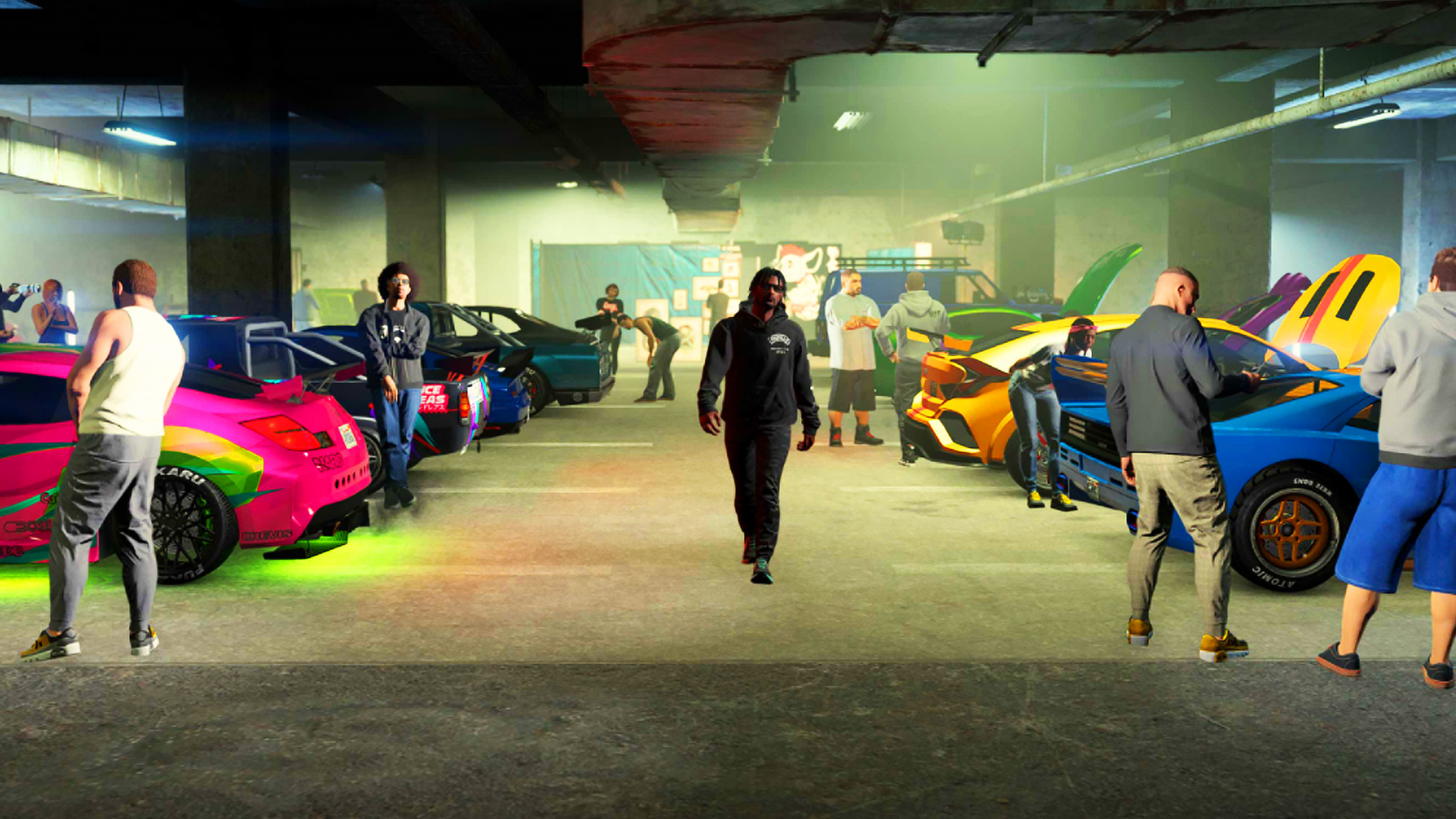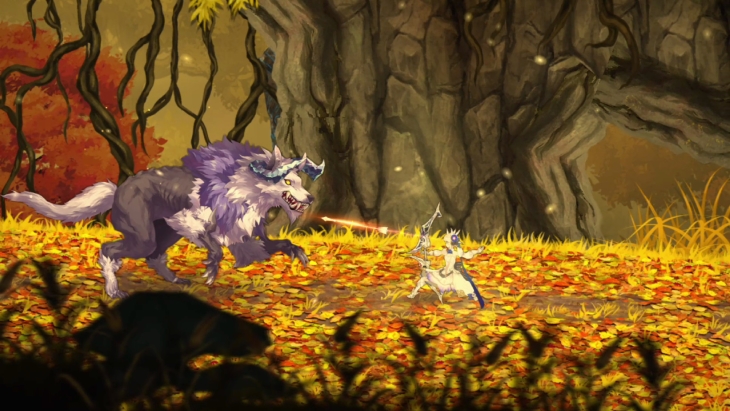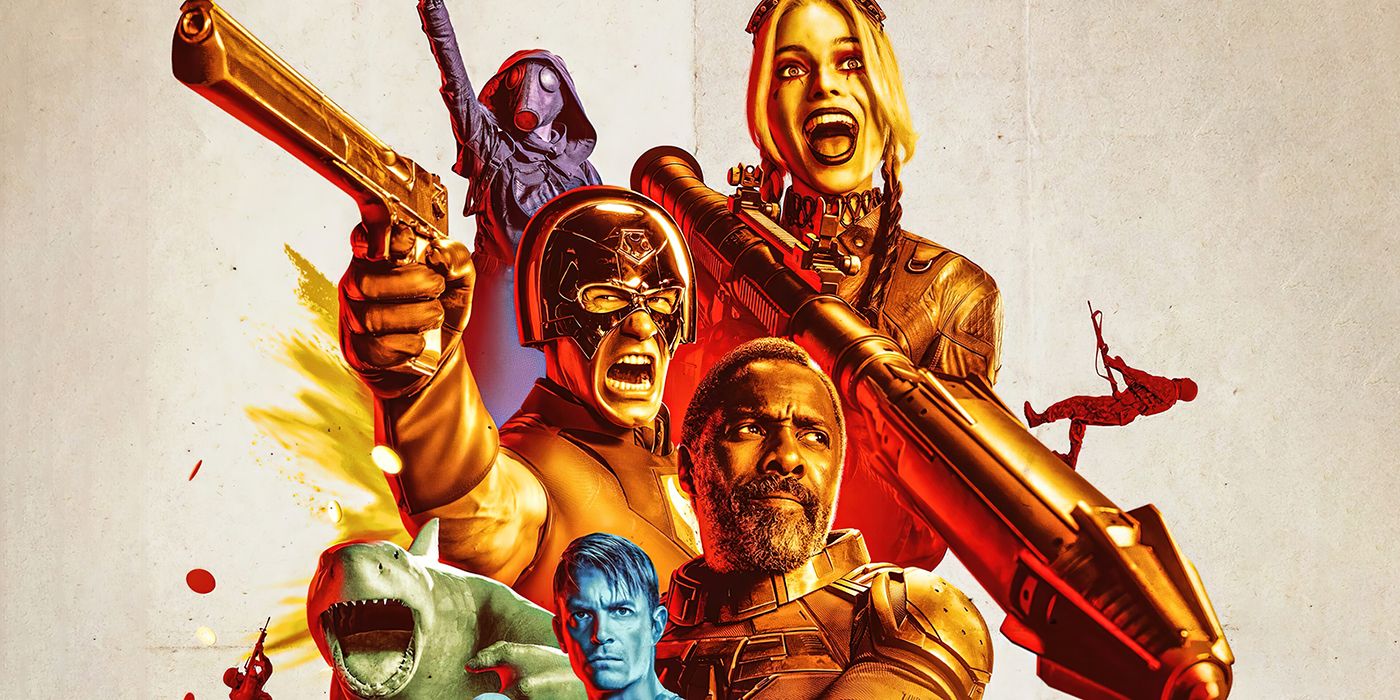
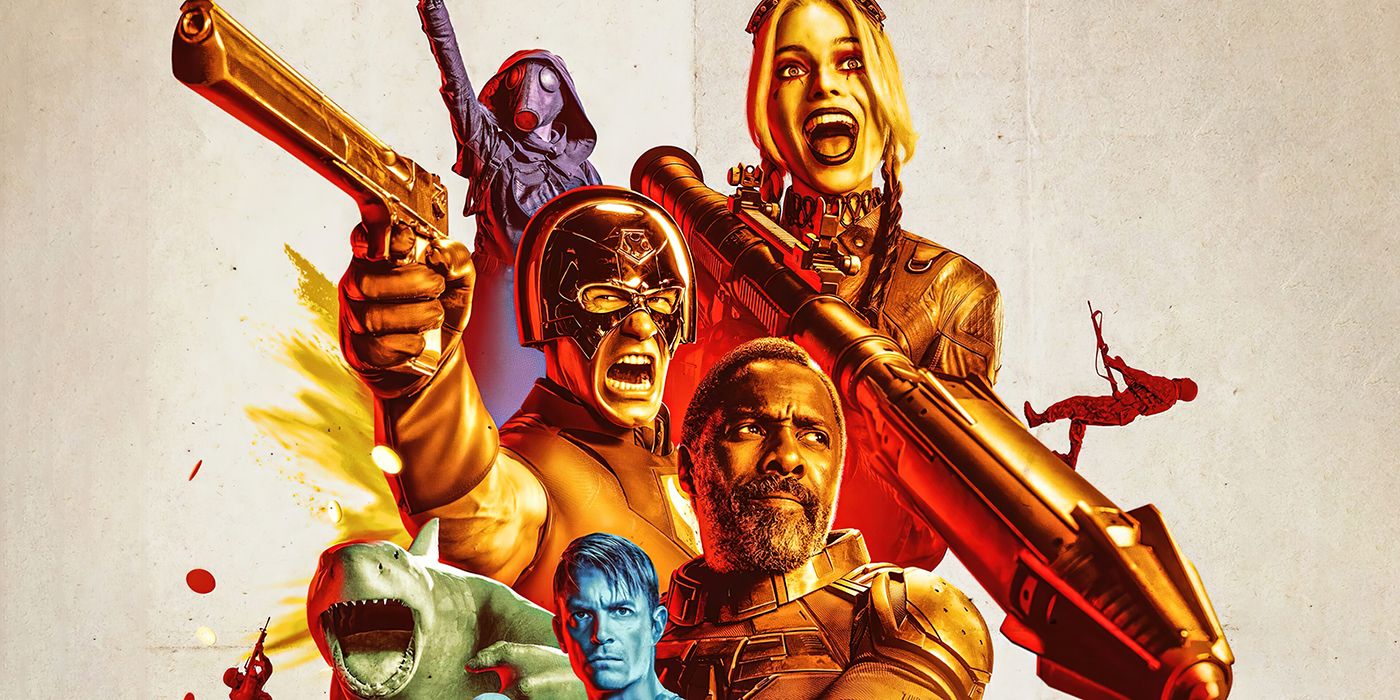
If art imitates life, then James Gunn is the greatest copycat in Hollywood. The writer-director who once relied on shock-jock edgelord humor in his work has amassed a reputation for telling stories of misfits and ne’er-do-wells reforming themselves without losing their earnest edge, in doing so becoming one of the most personal and genuine genre filmmakers in Hollywood. Gunn embodies his characters on a level most in his field can barely attest, and his rise to prominence as a valued voice in the superhero movie industry is a testament to his growth as an artist and cinematic storyteller.
Gunn's latest contribution, The Suicide Squad is a chaotic and explosive ode to comic books and their wild storytelling. Saddled with imperfect execution, it's nonetheless a high-flying, hysterical full-sprint of an action blockbuster, made possible by a creative lead who remembers why superhero cinema is so valuable to so many movie-goers.
RELATED: Margot Robbie Says The Suicide Squad Is The Best Comic Book Film Ever
The Suicide Squad’s production history reads like an Elseworlds issue: Gunn was working on the third Guardians of the Galaxy film when the Walt Disney Company wrongfully removed him from the project following a coordinated misinformation campaign from a group of online agitators during the summer of 2018. A grieving Gunn was then courted by Warner Bros., who signed him on to rewrite and direct the sequel to 2016’s critically panned, commercially successful Suicide Squad. The resulting film is a rare follow-up in the blockbuster sphere – classified as a sequel, it’s more so a “re-quel,” keeping the base premise and building an entirely new story on top of it.
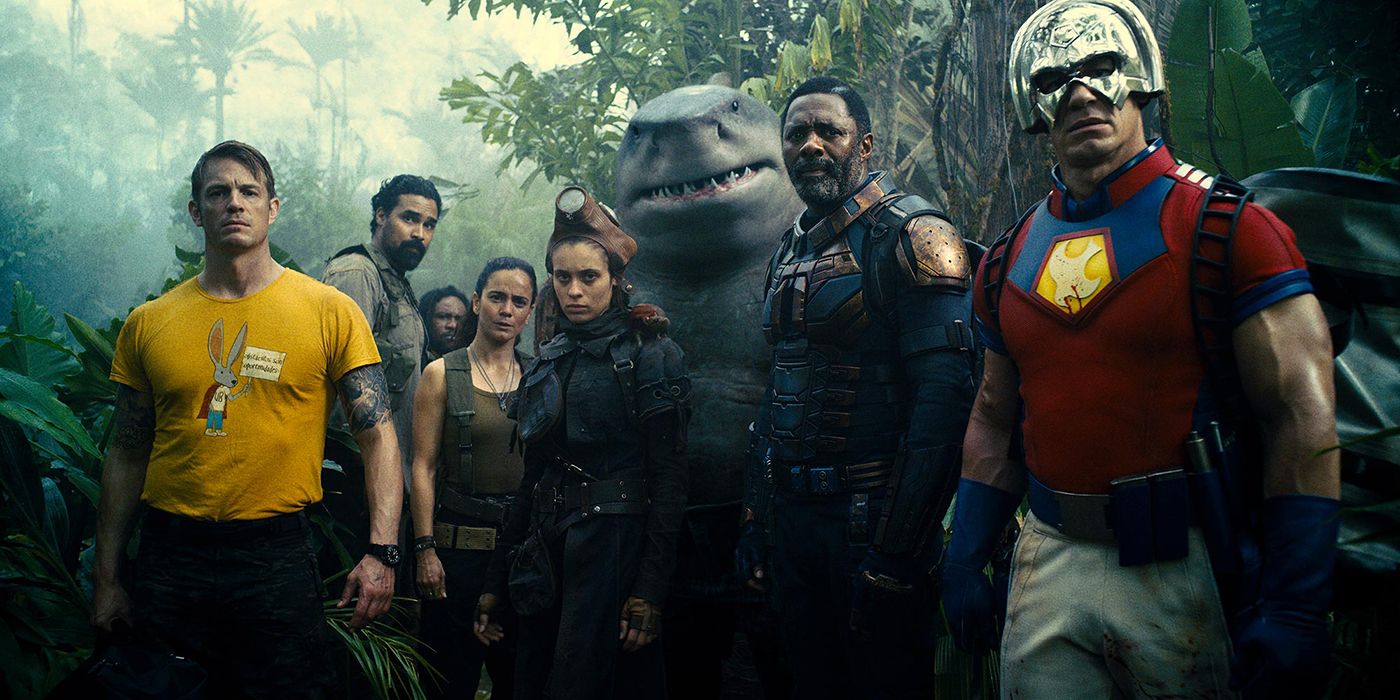
Said new story starts in familiar territory: Viola Davis’ Amanda Waller once again assembles a team of superpowered inmates from Belle Reve penitentiary to infiltrate a domestic area in conflict and destroy a supernatural entity. However, instead of stopping the Enchantress in Midway City, Task Force X is flown out to the island nation of Corto Maltese to obliterate all traces of the country’s towering World War II-era laboratory, Jotunheim, and the extraterrestrial monster contained within. Margot Robbie’s Harley Quinn, Joel Kinnaman’s Rick Flag, and Jai Courtney’s Captain Boomerang are joined by a long lineup of DC Z-listers, including John Cena’s Peacemaker, Mayling Ng’s Mongal, and Idris Elba’s Bloodsport.
Akin to James Gunn’s 2014 Marvel masterpiece Guardians of the Galaxy, The Suicide Squad’s plot is designed in simple terms to keep narrative momentum at a reasonable pace while the characters can bloom and build bonds amongst each other. In that respect, Gunn’s trust in his ensemble definitely paid off; the film's enormous cast is an utter delight. Standouts include Cena’s Peacemaker, who looks and acts like Captain America written by Tucker Carlson, and King Shark, a dim-witted ferocious anthropomorphic ocean-dweller perfectly voiced by Sylvester Stallone. Meanwhile, Margot Robbie continues to lay claim to her throne as the best casting decision in the DC Extended Universe, receiving a fairy-tale-gone-wrong subplot that allows her signature characterization to shine.
The film’s soul belongs to Daniela Melchior’s Ratcatcher 2, a Squad newcomer who inherited her father’s mantle and rat-controlling technology after his untimely death. Cleo Cazo is Melchior’s first non-Portuguese role and it certainly won’t be the last – she imbues Ratcatcher with endearing idealism and perseverance, elevating the entire film from prancing nihilism to Gunn’s signature misfit ingenuity.
More cynically, by that same token, the theming doesn’t come into play without Ratcatcher 2's spirit, especially as it relates to her role in the group’s dynamic. The film trades the emotional intelligence and restraint seen in Gunn's previous blockbusters for nonstop thrills ‘n’ kills – the exchange isn't detrimental by any means, but the end result is a more rigid experience. The Suicide Squad isn't for everyone, especially more squeamish audience members; their individual mileage may vary.
It's possible that rigidness is part of the point; arguably, the one person for whom The Suicide Squad was made is the man in the director's chair. Creating art can be just as cathartic as experiencing it, and in that vein, The Suicide Squad is a $200 million rage room for James Gunn. It’s not unreasonable to assume Gunn was processing a lot of emotions while writing the screenplay, following his highly-publicized removal from Guardians of the Galaxy Vol. 3.
The way the film so gleefully leans into its ultraviolence is evocative of Gunn’s raunchy roots at Troma Entertainment, sure, but it also plays out with such passion and purpose (the film’s R-rating is bench-pressing a small country). Squad members are dropped off at Death’s door like coddled toddlers at a day-care center, given a moment to wow the crowd before a grand and gory exit, all played over an excellent selection of licensed music from lesser-known artists. It’s an especially shocking and refreshing experience in an era where corporate-mandated plot armor is part of superhero cinema’s dress code – likely an intentional move on Gunn's part to shake up cultural expectations of the superhero movie institution.
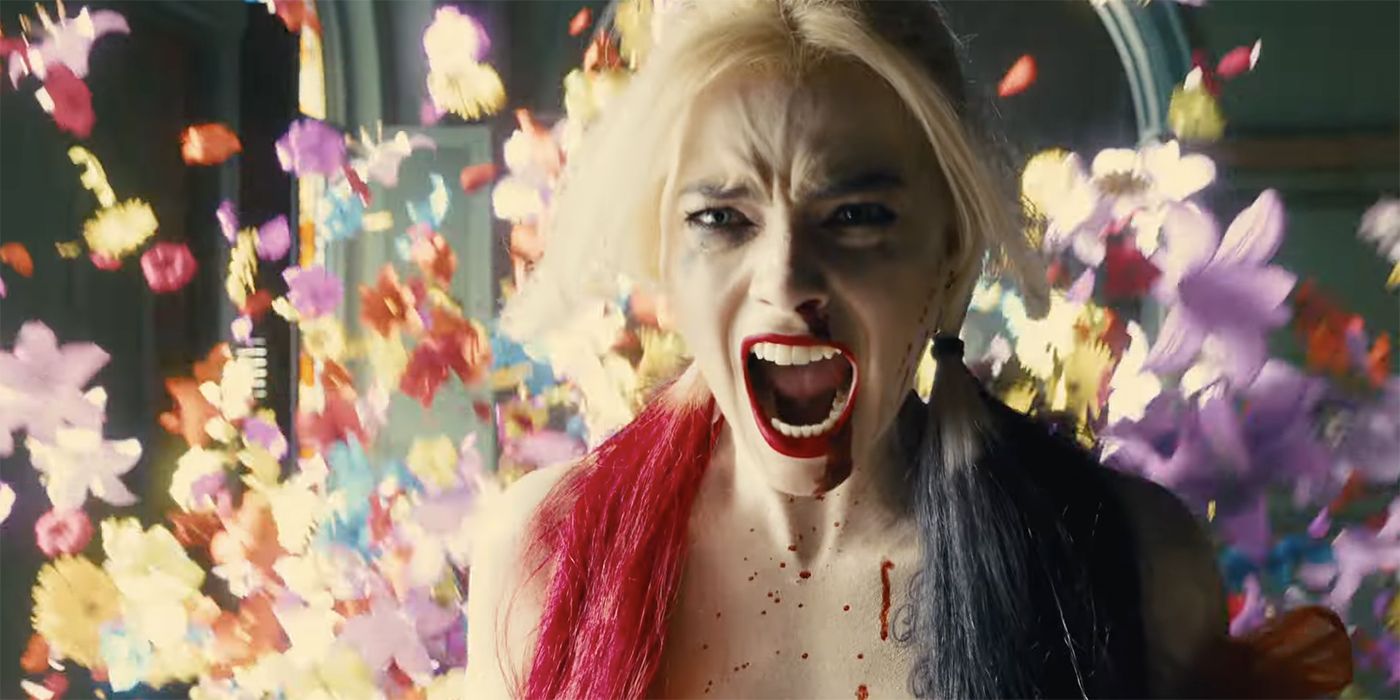
This isn’t to suggest the film antagonizes superhero movies overall or struggles under the weight of its comic book origins – in actuality, the opposite is true. The Suicide Squad works precisely because it was made by someone who obviously loves comic books and their chaotic storytelling. Gunn’s been open about his lifelong love of "Suicide Squad" creator John Ostrander’s comic run in the late ‘80s (from which the film draws inspiration), and that admiration envelops every frame.
This is no more apparent than at the moment the film’s final battle begins, in which text on-screen reading “THE SUICIDE SQUAD VS. STARRO THE CONQUEROR” opens the climax. The text is designed as if it were drawn by a schoolboy, daydreaming in his composition notebook during a dreary social studies lecture – Gunn and the other creative forces involved tapped into their inner-big kids to bring a sense of genuine enthusiasm, leaving behind most (but not all) traces of immaturity.
The enthusiasm is sometimes too much to handle, however. The film is so excited to start the bloodsoaked fireworks on Corto Maltese, it zips through a barebones preamble. It’s never a bad idea to hook audiences in quickly, but the way in which the personal stakes are laid out in seconds is so fast it feels like the film's trailer accidentally started playing instead of the real thing – it almost comes across as a remnant of the lasting legacy left behind by the film's 2016 predecessor, which also suffered from distractingly speedy editing.
The Suicide Squad’s cinematic language speaks with a heavy accent borrowed from Vietnam war films, including classics like 1979’s Apocalypse Now and 1987’s Full Metal Jacket. Corto Maltese is a lush battleground for Gunn’s mayhem (the opening action scene on a beach is where the film’s visual influences are clearest) – an active camera keeps the action more geographically consistent and the comedy much more naturally delivered.
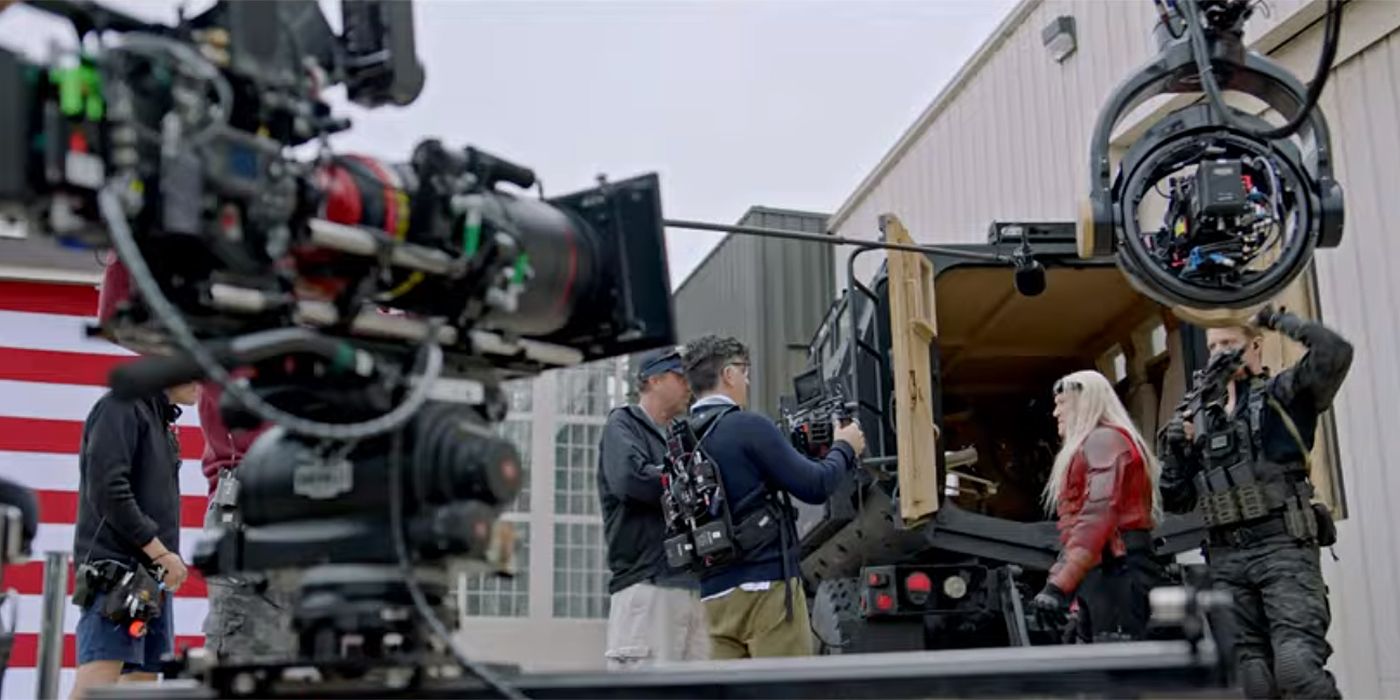
Unlike its forebearers, however, The Suicide Squad’s visual look comes off muddy and unspectacular. Given cinematographer Henry Braham's exceptional work on 2017's Guardians of the Galaxy Vol. 2, the unappealing camerawork here is all the more shocking. The Suicide Squad should've bit the bullet and embraced its most apparent influences by shooting on film instead of on a digital RED camera. With stronger black values and better natural saturation, the intensely fun action would've popped like no other comic book film before it.
It's arguable The Suicide Squad represents Warner Bros. overcorrecting its obsessive control over earlier DCEU films and allowing James Gunn and his team of creatives to run wild, partially to the resulting film's detriment. But by that same assumption, The Suicide Squad is also a healthy counterbalance to the studio-driven tentpoles in the superhero sphere. Its sense of violence and humor will turn some audience members away, but for everyone else, the film absolutely delivers a tour-de-force of action filmmaking and comedic prowess. At one of his lowest moments, James Gunn made one of the boldest and most uncompromising superhero films ever made – and it's a damn fun one at that.
MORE: Can The Suicide Squad Escape Guardians Of The Galaxy Comparisons?

